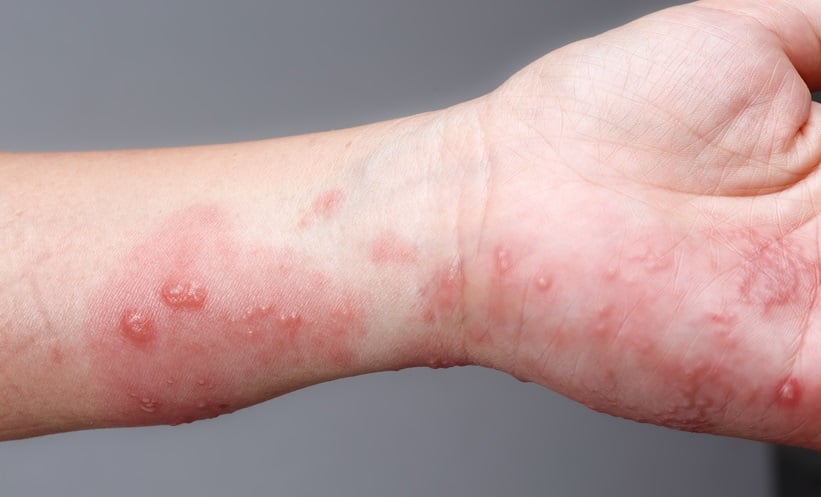AUTOIMMUNE blistering diseases (AIBD), including pemphigus and pemphigoid, are rare but serious skin conditions characterised by blistering due to autoimmune responses. They significantly affect patients’ quality of life and often require intensive treatment to manage symptoms and prevent complications. Recent studies have suggested that COVID-19 infection may trigger autoimmune responses, potentially leading to conditions like AIBD. The COVID-19 pandemic has intensified interest in understanding how both the infection and vaccination influence autoimmune disease risks. However, robust, large-scale evidence for these associations remains limited.
This study aimed to clarify the impact of COVID-19 infection and vaccination on the risk of developing AIBD. Utilising data from over 112 million individuals in a population-based retrospective cohort, researchers analysed AIBD risk within three months across three groups: those with COVID-19 infection, those vaccinated against COVID-19, and uninfected, unvaccinated controls. The study’s primary goal was to determine whether COVID-19 infection increased AIBD risk and whether vaccination had a protective effect.
Results indicated a significant association between COVID-19 infection and increased AIBD risk, particularly for pemphigus. The hazard ratio (HR) for developing AIBD after COVID-19 infection was 1.508, with the risk for pemphigus reaching an HR of 2.432. This heightened risk highlights the potential of COVID-19 to act as a trigger for autoimmune responses. In contrast, COVID-19 vaccination appeared to reduce AIBD risk substantially. The HR for AIBD following vaccination was 0.514, indicating an almost halved risk, with the protective effect particularly notable for pemphigus (HR 0.477). Comparisons revealed a more than threefold increased risk of AIBD in the COVID-19 infection group compared to the vaccinated group, suggesting that vaccination may mitigate autoimmune risks associated with the virus.
The findings provide strong evidence supporting COVID-19 vaccination’s dual role: reducing infection severity and potentially lowering the risk of autoimmune complications like AIBD. Although the study’s retrospective design introduces certain limitations, these results underscore the importance of vaccination from both a public health and autoimmune disease prevention perspective. Healthcare professionals should consider these findings when advising patients about vaccination benefits, particularly among those at risk for autoimmune diseases.
Reference
Curman P et al. COVID-19 infection is associated with an elevated risk for autoimmune blistering diseases while COVID-19 vaccination decreases the risk: a large-scale population-based cohort study of 112 million individuals. J Am Acad Dermatol. 2024.







